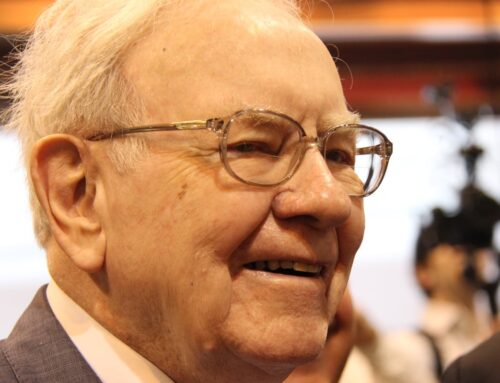Financial Expert Advises Investors Not To Panic About Stock Market
April 8, 2025

Federico DeMarco works on the floor at the New York Stock Exchange in New York, Tuesday, April 8, 2025. (AP Photo/Seth Wenig)
WHEELING — As the United States stock market continues to reel due to new tariffs under President Donald Trump, financial professionals are advising those worried about the market to sit tight.
Financial markets were down again at the close of trading after a volatile day Tuesday. The S&P 500 began the day with a surge of 4.1% on hopes that negotiations between the U.S. and other world countries could calm down turbulent tariff waters. That didn’t last, as it lost as much as 3% Tuesday before climbing back to a loss of 1.6%. According to the Associated Press, the index currently sits nearly 19% below its record set in February.
The Dow Jones Industrial Average lost 320 points, or 0.8%, after erasing an earlier surge of 1,460 points, while the Nasdaq composite dropped 2.1%. The Dow has dropped more than 4,000 points over the previous five days.
Walker Holloway, senior vice president at Wheeling-based financial firm Hazlett, Burt & Watson, shared some insights on how to handle this market downturn.
Since the beginning of the year, the market has been volatile, Holloway said, but even more so over the last few days. While the widespread concern is valid, the market has seen worse pullbacks and will eventually recover, he emphasized.
“It’s not fun to watch your account go down or watch the market go down, but typically, the best thing to do is just to hang on tight and let the market come back on its own,” he said.
Holloway compared the current market downturn to the COVID-19 pandemic in 2020 and the onset of Russia’s invasion of Ukraine in 2022, both events that caused stocks to plummet but which resolved themselves within a year or two.
Holloway recommended that anyone concerned with the state of their stocks seek advice from a financial advisor so they can receive more personalized advice as everyone is in their own situation.
“Everybody is unique and everybody has a different level of risk tolerance and different goals and time frames for things in their lives,” he said.
While the “buy low, sell high” mentality is generally good advice, it should not be used as a blanket statement for all investors. It is crucial to examine your own individual situation and financial goals, he said.
He also reminded that though the current economic impacts are jarring, tariffs are not permanent policy and will be resolved eventually.
“It’s definitely dramatic, there’s no way to get around that. But at some point there will be a deal made. Tariffs are not permanent. What has been done can be undone,” he said.
Though immediate impacts of tariffs spell higher costs for American consumers, he said it is inevitable that other countries’ economies will soon see negative effects as well. He said the tariffs will likely cause higher unemployment rates in countries that the U.S. has put tariffs on.
“That’s where the pressure will be felt, is overseas. Countries will have higher unemployment and that’s just not a good economic statistic to have,” he said.
At the end of the day, there is no way to future cast or predict how long this downturn will last.
“This may not be some prolonged downturn in the market, we don’t know but it could come back very quickly or it could be a prolonged thing,” he said.
In the meantime, don’t panic, he said.
“The knee-jerk reaction is always going to be very extreme, very negative and very fear-inducing, that’s just kind of human nature,” he said. “But it’ll come back sooner or later.”
Starting at $2.99/week.
Search
RECENT PRESS RELEASES
Related Post




